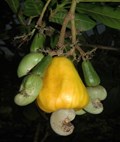
Due to a weak economy in most countries, as well as inflation and the Russia-Ukraine war, global cashew demand is expected to be flat this year. According to traders, due to lower yields in most growing regions, kernel availability is expected to be lower in 2022 compared to last year.
According to Pankaj N Sampat of Samsons Traders, logistical issues continue to plague the cashew sector, particularly longer transit times caused by blockages in China and congestion in ports, resulting in rollovers and cancellations. With oil prices above $100, the chances of freight rate relief in the medium term are slim.
The cashew industry began the year with a comfortable supply, steady growth in demand, and a flat market. It is almost certain that crops in Vietnam and Cambodia will be significantly lower than expected.
There is some concern in parts of India and West Africa, but the impact is unlikely to be significant, according to Sampat.
Despite the fact that kernel prices remained flat in the first quarter of 2022, raw cashew nut prices firmed up, began trading at around $1,200, and reached $1,275-1,300, he said.
They continued to rise in April, with recent trades ranging from $1,350 to $1,370. Premium origins like Benin, Senegal, and Gambia are trading above $1,650 per pound.
Sampat claims that discerning buyers are willing to pay a premium for improved quality, traceability, and sustainability. With premium-quality, Indian processors continue to sell at a significant premium to Vietnam and Africa, despite the fact that India's share of global kernel trade has fallen to around 10%.
According to J Rajmohan Pillai, Chairman of Beta Group, which owns the brand Nut King, value-added activities have been impacted because a disrupted distribution channel tends to lower the market value of cashew nut end-products. He believes that government funds and schemes to increase cashew production and marketing are urgently needed.
















